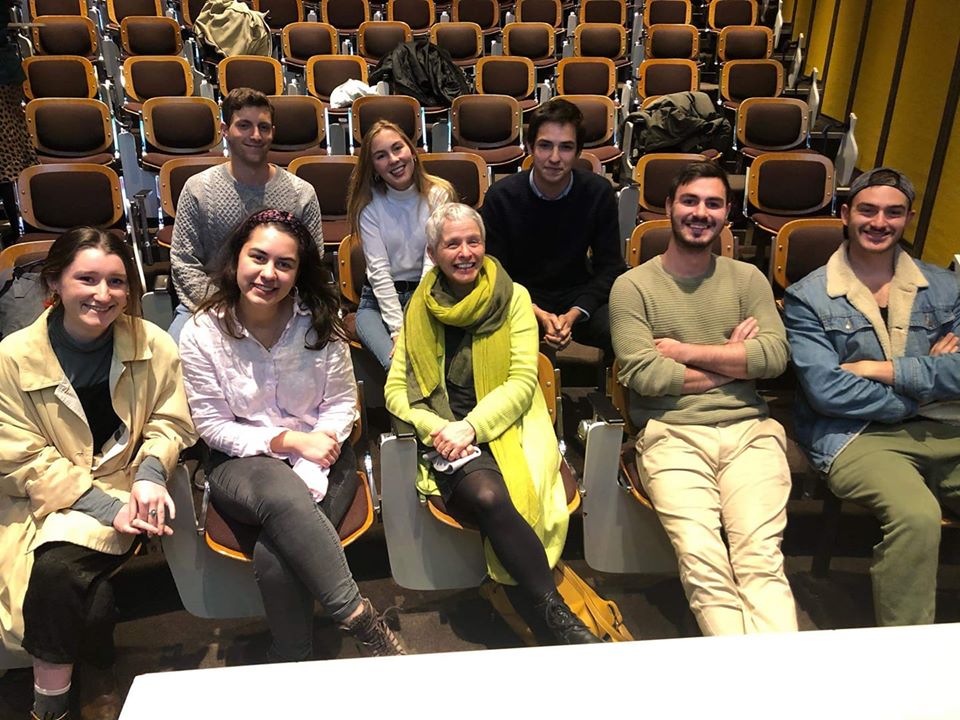Human trafficking is not an easy topic on which to deliberate. In the aftermath of the horrific discovery made in England earlier this month where 39 Vietnamese bodies were found dead in a van, it appears such inhuman matters are much closer to our lives than we imagined. Such harrowing news stories can often spark questions as to how and why these events transpire.
On Wednesday evening, these questions were answered. The Global Development Society cooridnated a lecture on human trafficking and smuggling, and a large group of students eagerly sat down to hear Dr Gillian Wylie give her thoughts on the issue. Wylie is the course coordinator of International Peace Studies and School’s PG Diploma in Conflict and Dispute resolution studies here at Trinity. She specialises in human trafficking and gender analysis of conflict.
This being the second year Wylie has spoken to the Global Development society, she took to the stage comfortably and with a welcoming smile. Having worked in this field for over a decade her extensive knowledge and experience of the fundamental causes and consequences of human trafficking permeated the presentation. Before divulging into current impacts of trafficking and smuggling, Wylie began by outlining its history. She plainly demonstrated to the students that this issue stems from a multitude of complex global issues ranging from environmental to socio-economic factors.
Wylie moved on to discuss the UN anti-crime convention against trafficking held in the year 2000 to highlight how the framing of this issue is perhaps unsuitable in dealing with this pandemic. There was a degree of shock among the listeners as Wylie showed the importance of these international crime control narratives, suggesting that the UN convention does not encourage the state to combat this issue in the pursuit of human rights. Wylie insightfully disagreed with the “crime control approach” to human trafficking, which focuses on the criminalisation of involved industries and rather than prevention strategies. She stated that: “the issues with fences and borders is the higher you built them, the harder it is for people to get around them, the more likely they are to engage in movement strategies that are defined as smuggling and trafficking.”
The atmosphere was solemn, however, the audience remained curious as Wylie went on to discuss sex trafficking in detail. Interestingly, she disagreed with the approach taken by Ireland to combat this issue, which is the criminalisation of buying sex. An unconventional stance, yet her reasoning was convincing, stating that these approaches are threatening and do not create a safe environment for those who are forced to sell sex.
However, Wylie carefully pointed out that human trafficking encompasses far more than sex trafficking alone. She was critical of activists who have not paid enough attention to the fishing industry and agricultural exploitation, an area which she believes is rife with injustices. This led her to leave the audience with the question – has the anti-sex trafficking movement cast a shadow over other issues?
After approximately forty minutes of speaking, she finished the thought-provoking lecture by opening up a Q&A discussion amongst the students. Given that most of the listeners attending the talk were her own students, the informal atmosphere created a very enjoyable discussion without a shortage of questions. In response to one question, Wylie ended with an intriguing statement that the audience should not focus on the numerical aspect of human trafficking and smuggling. She suggested that “when you peel back the layers of those statistics they turn to dust” as the complexity of human trafficking is one that is nearly impossible to measure numerically. Numbers can not tell us all.
It is fair to say that the audience left with a bundle of knowledge and a new perspective on this issue. After extensively discussing such a somber issue, those who attended the talk were not left hopeless. There are many ways in which we can deter the prevalence of human trafficking. Although the question of what the appropriate answer is to stop human trafficking is vastly complex, the first suggestion is to shift our cultural attitudes. We must not buy into the discriminatory rhetoric of border control, as this only results in those who are in desperate situations taking extreme actions. Harsher borders means worse consequences.






